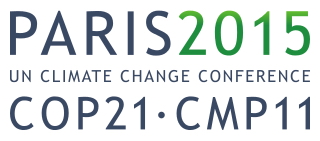More than 190 countries have joined the COP21 in Paris with the aim of achieving a legally binding and universal agreement on climate change so that global warming may stay below the critical level that experts consider to be located at 2 degrees Celsius.
The role that efficient management of energy in buildings plays in the achievement of this objective is fundamental. We must keep in mind that between 60 and 70 per cent of a country’s total consumption of electricity, is carried out in a building’s environment.
For the first time during the talks on the environment being carried out this year in Paris, a day has been reserved to discuss this issue in depth, where special interest is placed on its apparent lack of diffusion in the real estate market. The question that is trying to be answered is: if all the social and economic agents agree that energy efficiency for the management of buildings only brings benefits to all the parties involved, why aren’t more building owners carrying out these measures?
Until now, the achievement of these goals is benefited almost exclusively by the creation of codes, laws, rules and regulations that builders, contractors and certain agencies should follow from a legal point of view.
The great challenge now is to perform a disseminating work of the advantages not only generated by environmental energy efficiency, for the benefit of customers and builders, while maintaining the necessary legal requirements.











